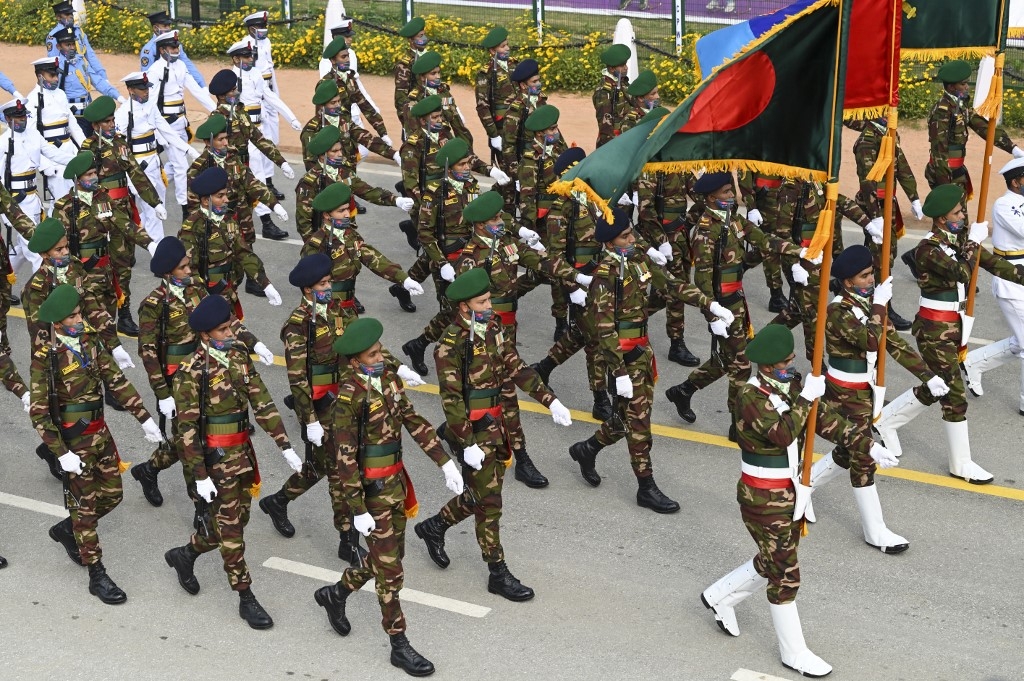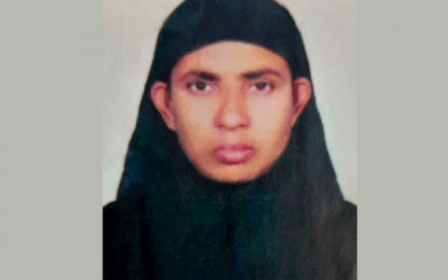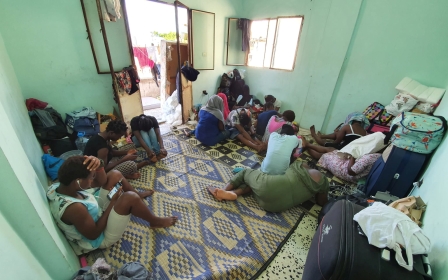Bangladesh purchased Israel-made surveillance equipment, says report

Bangladesh has been accused of buying Israeli-made surveillance equipment to spy on hundreds of people's mobile phones despite banning all trade with Israel.
Documented obtained by Al Jazeera's Investigation Unit revealed that Bangladesh's army acquired the P6 Intercept via a Bangkok-based middleman in 2018.
The P6 Intercept is a so-called IMSI-catcher, a type of technology often used by authorities to track attendees during protests via their mobile phones.
James Moloney, an Irish national who is CEO for Sovereign Systems, a Singapore based company, was the main contact for the Bangladeshi officials.
Moloney told undercover journalists from Al Jazeera that Sovereign Systems was a front company for PicSix, an Israeli-based firm run by Israeli intelligence experts.
New MEE newsletter: Jerusalem Dispatch
Sign up to get the latest insights and analysis on Israel-Palestine, alongside Turkey Unpacked and other MEE newsletters
"[The technology] is from Israel, so we don't advertise that technology," Moloney told undercover journalists from Al Jazeera.
"We put the cellular or WiFi interception on the website...the technology is very aggressive and intrusive. You don't want the public to know that you're using the equipment."
After Dhaka acquired the P6 intercepts, Israeli intelligence experts then trained the military officers from Bangladesh's army in Hungary.
An agreement signed by the Directorate General of Defence Purchases, a Bangladeshi government body responsible for buying arms on behalf of the Bangladeshi army, showed that both parties had to sign a non-disclosure agreement as a condition for the sale.
The contract, obtained by Al Jazeera, also shows that the equipment originated from Hungary. But secret recordings showed Moloney telling the Bangladeshis that the equipment was from Israel.
Bangladesh has no diplomatic relations with Israel and has banned trade with the country. Dhaka said that it would not recognise Israel until there is a viable independent Palestinian state.
The South Asian country acquired the P6 Intercept a day after Aziz Ahmed, the head of Bangladesh's army, became chief of staff.
Al Jazeera revealed on Monday that Ahmed's brother, convicted criminal Haris Ahmed, played a central role in military procurement for Bangladesh.
Haris is one of five brothers accused of having ties to criminal activity, including murder.
The Bangladeshi government did not respond to Middle East Eye requests for comment by time of publication.
Bangladesh's Foreign Minister AK Abdul Momen, however, denied his government had obtained the equipment on Monday.
"We have not bought anything from Israel, and we have nothing to do with them," Momen told BBC Bangla.
Middle East Eye delivers independent and unrivalled coverage and analysis of the Middle East, North Africa and beyond. To learn more about republishing this content and the associated fees, please fill out this form. More about MEE can be found here.




